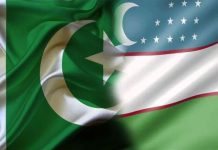Dr. Muhammad Akram Zaheer
Univesity of Okara
The ongoing clashes between Lebanon and Israel mean that there are continuous fights or conflicts happening between the two countries. These clashes involve ongoing, or continuous, instances of violence or disagreement. It could be in the form of military actions, disputes, or other confrontations between Lebanon and Israel. The situation is still unfolding, and tensions persist between the two nations. As of my last knowledge update in January 2022, I do not have specific information about any recent Lebanon-Israel clashes that may have occurred after that date. I recommend checking the latest news sources or reliable news websites for the most up-to-date information on any developments related to Lebanon-Israel clashes. However, historically, tensions have existed between Lebanon and Israel, primarily related to territorial disputes, the presence of militant groups, and broader regional conflicts. The border area between Lebanon and Israel, particularly along the Blue Line (established by the United Nations in 2000), has been a source of periodic tensions. Issues such as the presence of the militant group Hezbollah in Lebanon, cross-border attacks, and disputed territories have contributed to sporadic clashes between the two countries. The situation in the region is complex, involving political, religious, and geopolitical factors.
There have been ongoing conflicts between Lebanon and Israel along their border since October 8, 2023. These clashes are related to the war in Gaza, but they are not a new occurrence. While they may differ in scale and intensity compared to previous border clashes, they follow a pattern of measured retaliation. Israeli officials are increasingly warning that these border clashes could lead to a full-scale war with Lebanon. In response, Hezbollah officials argue that such a war would be equally costly for Israel. Both sides express a commitment to finding a diplomatic solution to the border tensions. Hezbollah conditions any negotiations on this issue on the end of the war in Gaza. The leader of Hezbollah, Hassan Nasrallah, has stated that the primary goals of the border escalation are to support Hamas and bring an end to the Gaza conflict. Historically, Lebanon and Israel have a record of border clashes, with the most recent ones occurring in June, when Israel claimed that Hezbollah had set up tents near the disputed village of Ghajar. In July, exchanges of fire wounded three Hezbollah members, and Israeli tear gas targeted Lebanese journalists and parliament members along the border. Notably, there is no internationally recognized land border between Lebanon and Israel, as both parties have not agreed to delineate it. The United Nations established a 120-km “line of withdrawal,” known as the Blue Line, in June 2000 after Israel’s withdrawal from southern Lebanon. This line helps determine compliance with United Nations Security Council Resolutions 425 and 426.
The United States recently helped Lebanon and Israel agree on their maritime borders. Now, the U.S. is trying to prevent a big war between the two countries by calming tensions along their land borders. There are 13 disputed points on this land border, and the U.S. had already helped settle 7 of them in the past. The remaining 6 are causing issues, especially two points called B1 and the “Wazzani reservation.” Last August, the U.S. envoy, Amos Hochstein, mentioned that the U.S. might help in solving the land border disputes. This idea gained importance recently due to increased military activity along the border. During a visit to Lebanon, Hochstein said the U.S. wants a diplomatic solution to the border conflict. He suggested temporary measures to ease tensions while acknowledging the difficulty of finding a long-term solution. Hezbollah, a group in Lebanon, changed its usual stance by expressing openness to indirect talks with the U.S. and Israel about the land borders. However, they set a condition that these talks should only happen if the conflict in Gaza ends. This is a significant shift from Hezbollah’s previous refusal to negotiate about Lebanon’s southern land border.












